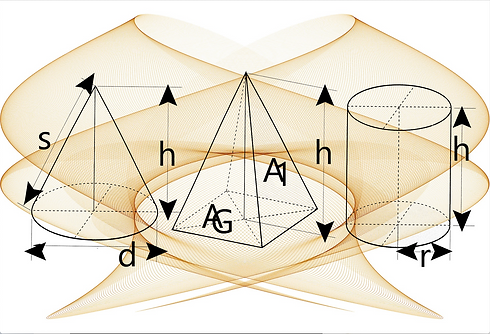

Idea & Motivation
Mathematics and Analogical Reasoning
The goal of this conference is to investigate the role of mathematics as a heuristic device for analogical reasoning in science and philosophy.
Empirical science relies heavily on mathematics. Mathematical models enable physicists to simulate dynamical ‘dumb hole’ analogues to gravitational black holes (Curiel 2019; Dardashti, Thébault, and Winsberg 2017; Gryb, Palacios, and Thébault 2019), chemists to study the behaviour of molecules, medical researchers to examine the spreading rate of diseases, and biologists to understand changes in animal populations. There is no doubt that mathematics is an indispensable scientific tool.
However, this is not the only way in which mathematics contributes to scientific progress. Sometimes particular mathematical structures serve scientists as heuristic devices in their own right by giving indications of structural similarities between otherwise unrelated physical systems (Steiner 1989, 1998). For example, scientists and engineers use physical analogies, such as scale models of bridges, along with other kinds of models, such as mathematical models, computer models, and model organisms. Such models are used for a variety of purposes but crucial to their utility is that they resemble or are in some sense analogous to the intended target system (Bartha 2010, 2016). Of particular interest here are mathematical analogies between two apparently different systems. For example, the logistic equation in ecology models the behaviour of a population growing until it approaches carrying capacity. This same equation crops up in many other places as well. In economics it is the diffusion of innovations equation and in chemistry it describes autocatalytic reactions. These three different physical systems apparently share a common mathematical core and this common core serves as the basis for fruitful analogies, such as the prediction of behaviour of chemical reactions because of known features of population growth (Colyvan 2002; Colyvan and Ginzburg 2010). Thus, a shared mathematical structure can offer valuable insights into the physical structures of otherwise unconnected systems.
In philosophical discourse, it is often not singular mathematical formulas, but the entire structure of mathematics that is used as an argumentative point of reference. Especially in the last ten years there has been a surge of publications using mathematics as a heuristic device (Brown 2010) in order to better understand long-standing metaphysical and epistemological problems in different philosophical fields. Metaethicists in particular have started to exploit local structural parallels between mathematics and morality in order to corroborate (Baker 2016; Clarke-Doane 2012, 2014; Enoch 2011; Roberts 2016) or undermine (Berry forthcoming, 2018; Leng 2016) realist views of morality, but mathematics has also been argued to share relevant features with the domains of logic (Leitgeb 2010; Schechter 2010, 2013), modality (Clarke-Doane 2019; Jonas 2017), and even theism (Jonas 2018; Wielenberg 2016). The analogies featuring in those arguments share a common form: a local analogy between mathematics and another meta-empirical domain is identified, from which a global conclusion is drawn about one or both of the domains. Thus, shared features between mathematics and other meta-empirical domains can offer new insights into the metaphysical structures of otherwise unrelated domains.
Questions we aim to address at the conference include (but are not limited to):
How can a positive mathematical analogy generate support for a particular theoretical view about otherwise disconnected physical systems?
Can we be sure that epistemic lessons from one domain carry over to another domain, given that there are always known points of disanalogy? If so, how?
Does the fact that shared mathematical structures can generate new scientific insights have a bearing on (enhanced) indispensability arguments for mathematical realism?
How can a mathematical analogy generate understanding of one system given our understanding of the model system?
What is an adequate methodology for analogical reasoning about meta-empirical domains (like mathematics or ethics)?
Are the mathematical background assumptions of recent arguments featuring mathematical analogies plausible (specifically in light of recent pluralist developments in set theory)?

Speakers

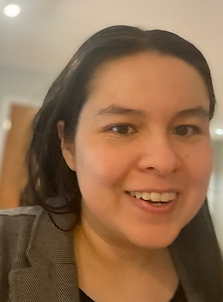
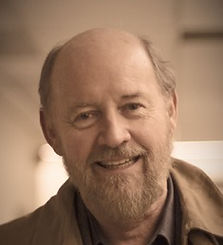
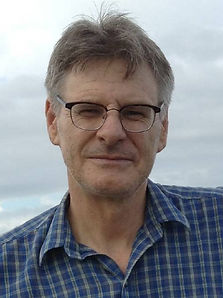
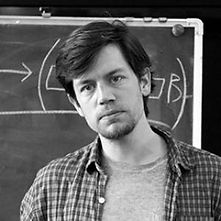
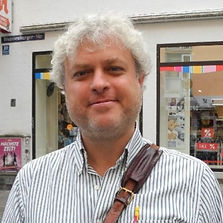


Program
Friday, 17. June 2022, 9:30-10.45
Justin Clarke-Doane
What is Logical Monism? (via Zoom)
Friday, 17. June 2022, 11:00-12:15
Sharon Berry
Hamkins' Analogy Between Set Theory and Geometry
Friday, 17. June 2022, 14:00-15:15
Mark Colyvan
Analogical reasoning with toy models (via Zoom)
Friday, 17. June 2022, 15:30-16:45
Alan Baker
Enumerative Induction: Analogies and Disanalogies Between Mathematics and Science
Saturday, 18. June 2022, 9:30-10.45
Erik Curiel
On the Epistemic Import of the Mathematical Representation of Analogue Black Holes (Or: Can Dumb Holes Speak Only in Metaphor, Never Anaphor?)
Saturday, 18. June 2022, 11:00-12:15
Mary Leng
The Prim and the Prime
Saturday, 18. June 2022, 14:00-15:15
William D'Alessandro
Analogies and modelling in pure mathematics
Saturday, 18. June 2022, 15:30-16:45
James Robert Brown
Reasoning in Math and Ethics: Platonism is a Swiss Army Knife (via Zoom)
Contact
